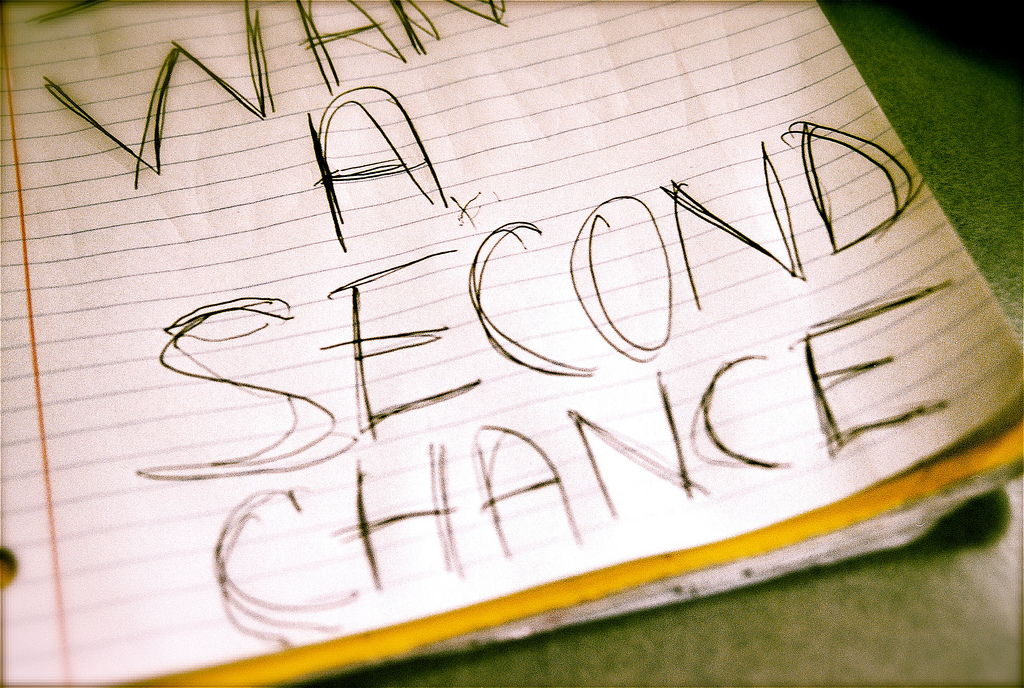Previously: Almost nine years after Katrina, I was subpoena to go in front of the judge for dirty urine. After the lawyer handed the judge 22 pages of recommends from my customers, the judge took a 15-minute break. She come back and stated that she read the recommends. I think the judge felt I do something for society and that we all deserve a second chance. She give a ruling for me to stay in society until they got a bed at the drug treatment program. I believed that all the people who accept me for who I be would keep me focus and give me strength. I never had this many people I can open up with.
Eleven months later . . . April 13, 2015.
This morning I got in the courtroom for a status hearing on my last urinalysis.
Nearly a year ago, on May 14, 2014 I entered Phoenix House for drug treatment. I didn’t wanna be there. But I didn’t wanna go back to jail neither.
In the program, I go to group meetings eight hours a day. You speak out about your problems, you write about your triggers. Some guys who spoke out, their stories were like mine. The counselors tell you to build your network with positive people and open up if something bothers you.
It was all nerve-wracking to me. I wanted to run away, but if I run, I would be sent back to jail. It was like Monopoly: if I leave the place, I pass go and get sent directly to jail. I would not collect two hundred dollars; instead, I would collect sixty months.
Some of the talks in the meetings inspired me. But one morning, after saying my prayer, full reality set in. I say to myself, I risked so many years with chemicals in my body and now all these people want to help. I decided to stay focused, to pull myself together.
I began talking out at meeting. And I reached out to help others. I could feel things was changing for me. I thought about things I had going on before the program and how I could be more focus now, like with my writing, and I felt like if I use the tools I learned in the program, I should not fall.
Because of my progress, I was permitted to move ahead of schedule to a recovery house, where I live with nine other men, all who had the same problems I had. Knowing I had a rent to pay, that make me manage the money I earn from selling my papers. As required for staying in the recovery house, I went to meetings every day for thirty days. I continue to go to meetings.
So here I was, back in court on April 13, 2015. I faced the same judge I went in front of last May—the one who sentenced me to the drug program.
The judge called on the parole officer and asked what the report was since the last time I been in, and the PO said everything is good and my urine is clean.
The judge feel so good about it, she smiled. I smiled. And then she ask the lawyer do he have anything to say.
He say, “No your honor, I’m proud of Mr. Anderson.”
And then the judge ask me did I have anything to say, and I say, “Yes ma’am, your honor.
She say go on and say what you’ve got to say.
And I say, “Thank you, Judge, for giving me a second chance,” and she say you’re welcome. She also say let me know when your book come out.
Hearing the judge say that make me smile. She say every Street Sense paper that comes out she buys it. She want to buy my book! And she proud of me. She say she showed my stories from Street Sense to her family.
I had to put my head down and smile. It make me feel proud compared to what judges used to say to me.
Also everything got dismissed on me, meaning I don’t have to go in front of the court no more, lessen I get in trouble. I felt so good. I know that six months from now, when I go back in front of the judge with the same good behavior, I really feel to believe she’ll take me off supervision.
Next I’ll be telling you my story about all that happened after Katrina, after I was evacuated to D.C.
Coming soon on Amazon: My Katrina story for Kindle.




